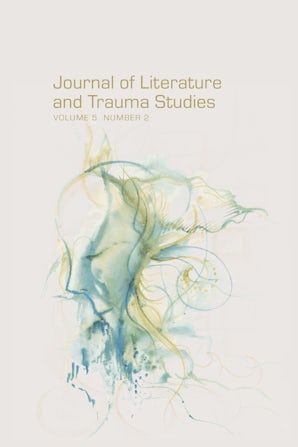Stef Craps Ghent University
Stef Craps is an associate professor of English literature at Ghent University, where he directs the Cultural Memory Studies Initiative. His research interests range across contemporary global Anglophone literature, twentieth and twenty-first-century British fiction, memory and trauma studies, postcolonial theory, and ecocriticism and environmental humanities. Stef Craps Curriculum Vitae 2016-03-22 Department of Literary Studies (English Studies) Ghent University, Blandijnberg 2, B-9000 Gent, Belgium +32 496 83 95 71 - stef.craps@ugent.be - www.stefcraps.com EDUCATION PhD, English Literature, University of Leuven, Belgium, 2003 MA, Women and Literature in English, University of Hull, UK, 2000. Trauma has become a catchword of our time and a central category in contemporary theory and criticism. In this illuminating and accessible volume, Lucy Bond and Stef Craps: - provide an account of the history of the concept of trauma from the late nineteenth century to the present day - examine debates around the term in their historical and cultural contexts - trace the origins and growth of. STEF CRAPS teaches English at Ghent University, Belgium, where he also directs the Centre for Literature and Trauma. He is the author of Trauma and Ethics in the Novels of Graham Swift: No Short-Cuts to Salvation (2005). Stef Craps is a research professor in English literature at Ghent University, where he directs the Centre for Literature and Trauma (LITRA). He is the author of Trauma and Ethics in the Novels of Graham Swift: No Short-Cuts to Salvation (Sussex Academic Press, 2005) and Postcolonial Witnessing: Trauma Out of Bounds (Palgrave Macmillan, forthcoming), and has served as guest editor for special.


WORKSHOP with Stef Craps (Ghent University)
Friday 22nd November, 1-4 pm.
Location: Roeterseiland E gebouw E0.22

The increasing visibility of climate change and scientists’ alarming warnings about it are taking a toll on people’s mental well-being. This lecture surveys the culturally resonant repertoire of new coinages that have emerged in recent years to name and communicate environmentally induced distress. It pays particular attention to the concept of pre-traumatic stress disorder, which has become the focus of a small but important body of humanistic scholarship calling for an expanded trauma theory that would be future- as well as past-oriented. Noting trauma theory’s persistent human-centredness, the lecture goes on to consider attempts that are being made to reconceptualize trauma in non-anthropocentric terms and to acknowledge the interconnectedness and entanglement of human and non-human traumas. It ends by predicting that cultural trauma research, which has so far shown relatively little interest in environmental issues in general and climate change in particular, will engage more fully with our dire environmental predicament in the years ahead.
Stef Craps is a professor of English literature at Ghent University, where he directs the Cultural Memory Studies Initiative. His research interests lie in twentieth-century and contemporary literature and culture, memory and trauma studies, postcolonial theory, and ecocriticism and environmental humanities. He is the author of Postcolonial Witnessing: Trauma Out of Bounds (Palgrave Macmillan, 2013) and Trauma and Ethics in the Novels of Graham Swift: No Short-Cuts to Salvation (Sussex Academic Press, 2005), and a co-editor of Memory Unbound: Tracing the Dynamics of Memory Studies (Berghahn, 2017). He has also co-edited two special issues of Studies in the Novel, on climate change fiction and postcolonial trauma novels, and one of Criticism: A Quarterly for Literature and the Arts, on transcultural Holocaust memory. He has recently co-authored an introductory guide to the concept of trauma, which is forthcoming in Routledge’s New Critical Idiom series, and is currently guest-editing a special issue of American Imago on ecological grief.
In preparation for the workshop students read three academic chapters/articles (see reading list below); they formulate a question for Stef Craps (around 200 words), which they print and bring to the workshop.

Participation in the workshops earns RMA students 1 EC. Register by sending a mail to nica-fgw@uva.nl. Please mention your affiliation.
Reading list:
Stef Craps Ghent University Phd
- Craps, Stef. “Climate Change and the Art of Anticipatory Memory.” Parallax 23:4 (2017): 479-492.
- Cunsolo, Ashlee & Karen Landman, eds. Mourning Nature: Hope at the Heart of Ecological Loss and Grief. Montreal: McGill-Queen’s University Press, 2017. Introduction.
- Saint-Amour, Paul. “Waiting for the Bomb to Drop.” The New York Times, 3 August 2015.